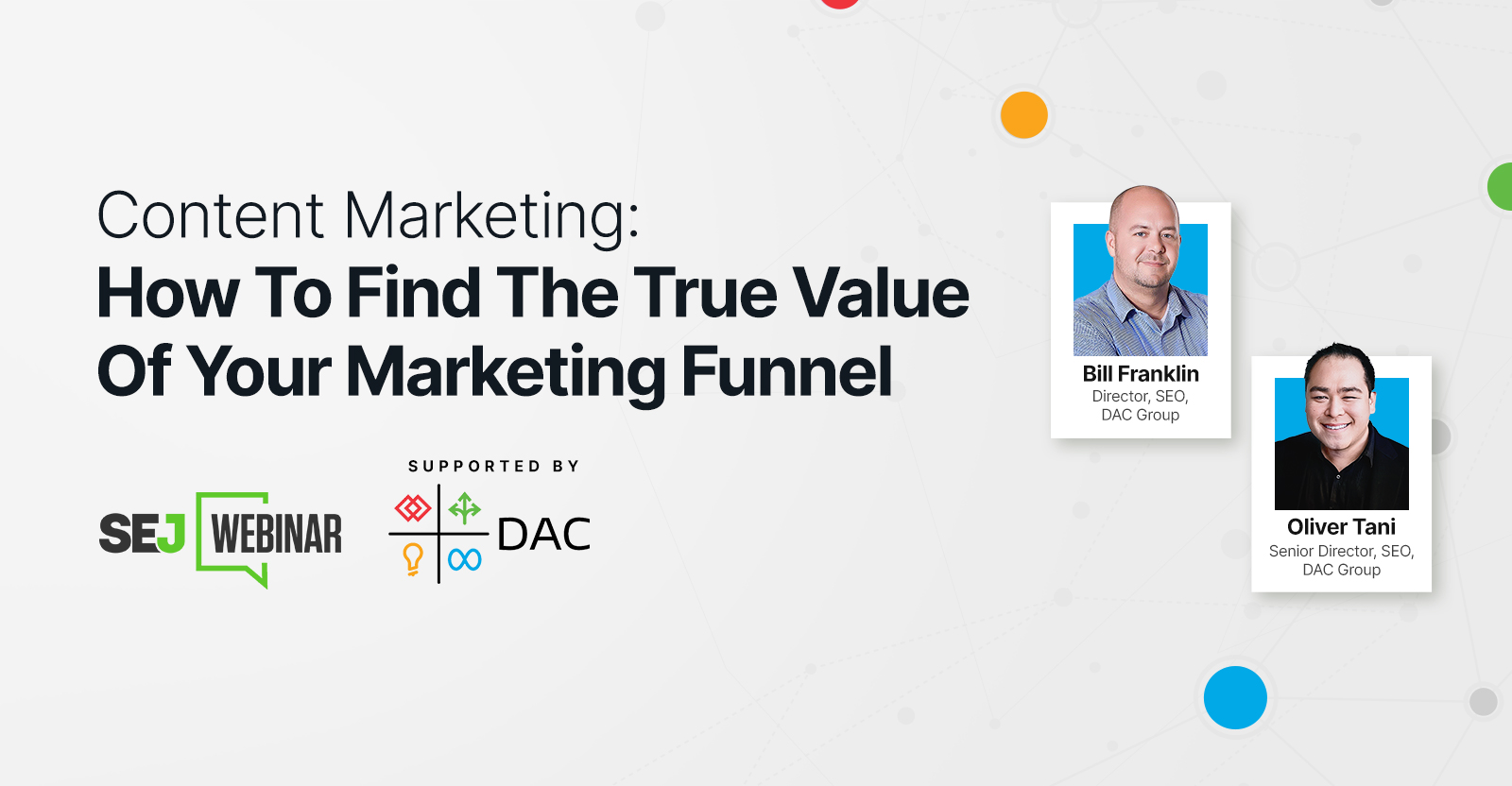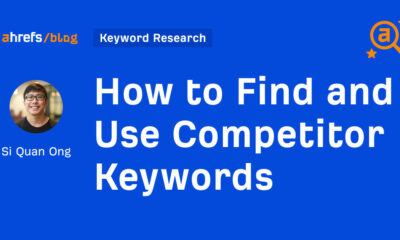SEO
How To Choose The Right SEO Agency For You

Do you know how to pick the right SEO agency for you?
Here’s a guide to help you pick the right SEO agency for your business:
When you pick an SEO agency for your business, think of shopping for a perfect pair of shoes. You wouldn’t grab the very first pair of shoes that you saw, would you?
Chances are, you’d browse through the shoe racks. You’ll keep looking to find a pair your heart is set on. And once you find it, you’ll try it on, walk around the store and see how it fits on your feet.
The same goes when picking the right SEO firm. You don’t hop into any agency that shows up on the first page of your search results (although them being on the first page is a good sign!) You have to do your homework well.
Having the right systems in place will do you and your business good. When choosing an SEO agency, you must have the right process in place as well.
Keep in mind that the SEO agency will do a big chunk of work to make your business visible and searchable online.
But what is SEO, anyway?
SEO (Search Engine Optimization) involves steps that increase your online visibility. That means improving exposure to your brand on search engines.
Nowadays, customers search for products via Google, Bing, or other search engines. What SEO can do is increase and improve your website’s visibility on the SERPs.
The processes in SEO include making changes to the design of your website or your content. These changes are essential to make your website attractive to people and search engines.
It seems easy, but it requires effort. You need a well-rounded team that’s well-versed in the latest updates and trends of search engines. These specialists have the skills and strategic knowledge to meet your business goals.
How to Find an SEO Agency That’s Right For You
To pick the right SEO agency, you need to determine why you need it for your business first. Once you have defined what you want to achieve, your next step is to map out the outcome you desire.
Make sure your goals are already in place when you reach out to an SEO agency. This will help you avoid wasting the time, money, and hard work you put into the business.
Do Your Research About The SEO Company
Don’t fall down into the rabbit hole thinking all SEO agencies know what they’re doing. Not all SEO agencies that show on the first page of search results are credible and experts in the field. Some SEO agencies are on the first page because of Google Ads. Some are on the first page because they practice unethical strategies.
Take time to dive deep and know each SEO agency you find. If a colleague or a business partner referred you to an SEO agency, prepare questions for them ahead of time.
Ask the agency if they can provide information about their past performances. Ask about their case studies, their recognition or awards, or any of their past campaigns.
Ask their past and current clients about their experiences
Their past and current clients can help you identify the agency’s professionalism.
Check out the agency’s website for clients’ testimonials or in-depth reviews.
You may also reach out to two or three of their current clients. Ask about their experiences with the SEO agency you’re eyeing.
Learn about the SEO agency’s work process
Any SEO agency that tells you there’s one fail-proof strategy to rank high on the web is a fraud.
Different businesses have different goals and needs at different times. A credible SEO agency wouldn’t give you ready-made strategies. Why? Because different businesses have unique needs.
Be wary that some SEO agencies use unethical work processes. A black hat SEO strategy is the unethical practice of increasing your website’s ranking in the shortest time. Keyword stuffing, hidden links, and paid links are examples of black hat strategies. When search engines find you’re ranking because of such practices, it’s going to cost you and your business a lot.
Here at SEO Hacker, we make use of purely white-hat strategies. None of our clients have ever gotten penalized by search engines for the work we’ve done for them.
Here are a few helpful tips for learning about an SEO agency’s process:
- The right SEO agency offers a website audit to identify opportunities for your business

Website audits help you and the agency find opportunities for website improvement. This is where transparency comes in.
SEO Hacker offers website audits to evaluate your website’s SERP. We grade your website’s design, user experience, and content. We also identify issues that need improving and provide recommendations to increase your website’s ranking.
We don’t charge for website audits and set up Google Analytics as some agencies do.
We also consistently track campaigns, promptly correct irregularities, and frequently provide updates. Our team have open communication that demonstrates sincerity in meeting your goals.
- Check out how the SEO agency tracks result for their clients.
Campaigns aren’t pre-arranged because businesses have different needs. But, there are crucial metrics in SEO that need a steady check from the agency. These are:
- Organic traffic
- Subscriber size and user retention
- Conversion rate
- Page Loading Speed
- Device Used
- Page Errors
The best SEO firms know which metrics to check out based on your business goals. SEO Agencies only gather data that are relevant to you. They must know how to provide an update that’s easy to understand.
- They have a qualified team of specialists dedicated only to your business.
Most SEO agencies will have a dedicated team of specialists who will work on your campaign. Their only focus is on creating strategies, overseeing the process, and execution. This is to avoid confusion and who you’re going to reach out to for updates.
- The right SEO company ranks on its own supposed keywords
One of the most sure-fire credentials of a reputable SEO agency is when you find them on the first page of SERPs. If the agency you’re looking at can’t even rank for their own keywords, how can you be sure they can help you rank with yours?

They must be knowledgeable in using the right tools. But more importantly, they must have the skill to do manual keyword research as it involves intuition. You must have a genuine insight into what your customers usually search for.
Give the SEO company’s website a visit
Most SEO Agencies’ websites provide information about their work culture and their process. Their website also shows their authoritativeness in the field with their content.

When you pay the agency’s website a visit, look for information of the following:
- All relevant information about the latest trends and updates on search engines’ algorithms
Their content must be relevant and updated with the latest trends on search engines. The only thing that’s constant with Google is their algorithm updates. In SEO Hacker, we update our blog every Tuesday with algorithm updates, important SEO news, and tips, tricks, and strategies that you can use to improve your website’s SEO.
- The company’s values and work culture
An SEO firm’s work values and culture reflect how they manage their clients. If they have an extensive list of clients who work with them, chances are they have a good history of work ethics.
In SEO Hacker, we’re transparent about our work culture and ethics. We want our clients and potential customers to know what kind of agency we are.
- Their contact information
Any SEO agency that’s transparent has contact information available online. This way, you can inquire or reach out to them with ease.
- Their clients’ feedback or review
Clients’ feedback is legit social proof of an SEO agency’s work excellence. One cannot fake how their clients actually see the work they’ve done for them. Besides, what agency wouldn’t want to showcase their masterwork anyway?
Key Takeaway
It’s important for any business to establish goals first before they find the right SEO agency. Do you want to increase your visibility to get more leads? Do you want to improve your search rankings to get more sales? Once you have the answer it’ll be easy for you to pinpoint which SEO agency can help in reaching your goal.
It’s also important to meet with the SEO agency first. A discovery call helps in determining whether the agency is able to help meet your goal. Prepare questions that will help you identify if you have the same work values. Once you’re settled to work with them, prepare all the information they will need to meet your goal.
Source link
SEO
Measuring Content Impact Across The Customer Journey

Understanding the impact of your content at every touchpoint of the customer journey is essential – but that’s easier said than done. From attracting potential leads to nurturing them into loyal customers, there are many touchpoints to look into.
So how do you identify and take advantage of these opportunities for growth?
Watch this on-demand webinar and learn a comprehensive approach for measuring the value of your content initiatives, so you can optimize resource allocation for maximum impact.
You’ll learn:
- Fresh methods for measuring your content’s impact.
- Fascinating insights using first-touch attribution, and how it differs from the usual last-touch perspective.
- Ways to persuade decision-makers to invest in more content by showcasing its value convincingly.
With Bill Franklin and Oliver Tani of DAC Group, we unravel the nuances of attribution modeling, emphasizing the significance of layering first-touch and last-touch attribution within your measurement strategy.
Check out these insights to help you craft compelling content tailored to each stage, using an approach rooted in first-hand experience to ensure your content resonates.
Whether you’re a seasoned marketer or new to content measurement, this webinar promises valuable insights and actionable tactics to elevate your SEO game and optimize your content initiatives for success.
View the slides below or check out the full webinar for all the details.
SEO
How to Find and Use Competitor Keywords

Competitor keywords are the keywords your rivals rank for in Google’s search results. They may rank organically or pay for Google Ads to rank in the paid results.
Knowing your competitors’ keywords is the easiest form of keyword research. If your competitors rank for or target particular keywords, it might be worth it for you to target them, too.
There is no way to see your competitors’ keywords without a tool like Ahrefs, which has a database of keywords and the sites that rank for them. As far as we know, Ahrefs has the biggest database of these keywords.
How to find all the keywords your competitor ranks for
- Go to Ahrefs’ Site Explorer
- Enter your competitor’s domain
- Go to the Organic keywords report
The report is sorted by traffic to show you the keywords sending your competitor the most visits. For example, Mailchimp gets most of its organic traffic from the keyword “mailchimp.”


Since you’re unlikely to rank for your competitor’s brand, you might want to exclude branded keywords from the report. You can do this by adding a Keyword > Doesn’t contain filter. In this example, we’ll filter out keywords containing “mailchimp” or any potential misspellings:


If you’re a new brand competing with one that’s established, you might also want to look for popular low-difficulty keywords. You can do this by setting the Volume filter to a minimum of 500 and the KD filter to a maximum of 10.


How to find keywords your competitor ranks for, but you don’t
- Go to Competitive Analysis
- Enter your domain in the This target doesn’t rank for section
- Enter your competitor’s domain in the But these competitors do section


Hit “Show keyword opportunities,” and you’ll see all the keywords your competitor ranks for, but you don’t.


You can also add a Volume and KD filter to find popular, low-difficulty keywords in this report.


How to find keywords multiple competitors rank for, but you don’t
- Go to Competitive Analysis
- Enter your domain in the This target doesn’t rank for section
- Enter the domains of multiple competitors in the But these competitors do section


You’ll see all the keywords that at least one of these competitors ranks for, but you don’t.


You can also narrow the list down to keywords that all competitors rank for. Click on the Competitors’ positions filter and choose All 3 competitors:


- Go to Ahrefs’ Site Explorer
- Enter your competitor’s domain
- Go to the Paid keywords report


This report shows you the keywords your competitors are targeting via Google Ads.
Since your competitor is paying for traffic from these keywords, it may indicate that they’re profitable for them—and could be for you, too.
You know what keywords your competitors are ranking for or bidding on. But what do you do with them? There are basically three options.
1. Create pages to target these keywords
You can only rank for keywords if you have content about them. So, the most straightforward thing you can do for competitors’ keywords you want to rank for is to create pages to target them.
However, before you do this, it’s worth clustering your competitor’s keywords by Parent Topic. This will group keywords that mean the same or similar things so you can target them all with one page.
Here’s how to do that:
- Export your competitor’s keywords, either from the Organic Keywords or Content Gap report
- Paste them into Keywords Explorer
- Click the “Clusters by Parent Topic” tab


For example, MailChimp ranks for keywords like “what is digital marketing” and “digital marketing definition.” These and many others get clustered under the Parent Topic of “digital marketing” because people searching for them are all looking for the same thing: a definition of digital marketing. You only need to create one page to potentially rank for all these keywords.


2. Optimize existing content by filling subtopics
You don’t always need to create new content to rank for competitors’ keywords. Sometimes, you can optimize the content you already have to rank for them.
How do you know which keywords you can do this for? Try this:
- Export your competitor’s keywords
- Paste them into Keywords Explorer
- Click the “Clusters by Parent Topic” tab
- Look for Parent Topics you already have content about
For example, if we analyze our competitor, we can see that seven keywords they rank for fall under the Parent Topic of “press release template.”


If we search our site, we see that we already have a page about this topic.


If we click the caret and check the keywords in the cluster, we see keywords like “press release example” and “press release format.”


To rank for the keywords in the cluster, we can probably optimize the page we already have by adding sections about the subtopics of “press release examples” and “press release format.”
3. Target these keywords with Google Ads
Paid keywords are the simplest—look through the report and see if there are any relevant keywords you might want to target, too.
For example, Mailchimp is bidding for the keyword “how to create a newsletter.”


If you’re ConvertKit, you may also want to target this keyword since it’s relevant.
If you decide to target the same keyword via Google Ads, you can hover over the magnifying glass to see the ads your competitor is using.


You can also see the landing page your competitor directs ad traffic to under the URL column.


Learn more
Check out more tutorials on how to do competitor keyword analysis:
SEO
Google Confirms Links Are Not That Important

Google’s Gary Illyes confirmed at a recent search marketing conference that Google needs very few links, adding to the growing body of evidence that publishers need to focus on other factors. Gary tweeted confirmation that he indeed say those words.
Background Of Links For Ranking
Links were discovered in the late 1990’s to be a good signal for search engines to use for validating how authoritative a website is and then Google discovered soon after that anchor text could be used to provide semantic signals about what a webpage was about.
One of the most important research papers was Authoritative Sources in a Hyperlinked Environment by Jon M. Kleinberg, published around 1998 (link to research paper at the end of the article). The main discovery of this research paper is that there is too many web pages and there was no objective way to filter search results for quality in order to rank web pages for a subjective idea of relevance.
The author of the research paper discovered that links could be used as an objective filter for authoritativeness.
Kleinberg wrote:
“To provide effective search methods under these conditions, one needs a way to filter, from among a huge collection of relevant pages, a small set of the most “authoritative” or ‘definitive’ ones.”
This is the most influential research paper on links because it kick-started more research on ways to use links beyond as an authority metric but as a subjective metric for relevance.
Objective is something factual. Subjective is something that’s closer to an opinion. The founders of Google discovered how to use the subjective opinions of the Internet as a relevance metric for what to rank in the search results.
What Larry Page and Sergey Brin discovered and shared in their research paper (The Anatomy of a Large-Scale Hypertextual Web Search Engine – link at end of this article) was that it was possible to harness the power of anchor text to determine the subjective opinion of relevance from actual humans. It was essentially crowdsourcing the opinions of millions of website expressed through the link structure between each webpage.
What Did Gary Illyes Say About Links In 2024?
At a recent search conference in Bulgaria, Google’s Gary Illyes made a comment about how Google doesn’t really need that many links and how Google has made links less important.
Patrick Stox tweeted about what he heard at the search conference:
” ‘We need very few links to rank pages… Over the years we’ve made links less important.’ @methode #serpconf2024″
Google’s Gary Illyes tweeted a confirmation of that statement:
“I shouldn’t have said that… I definitely shouldn’t have said that”
Why Links Matter Less
The initial state of anchor text when Google first used links for ranking purposes was absolutely non-spammy, which is why it was so useful. Hyperlinks were primarily used as a way to send traffic from one website to another website.
But by 2004 or 2005 Google was using statistical analysis to detect manipulated links, then around 2004 “powered-by” links in website footers stopped passing anchor text value, and by 2006 links close to the words “advertising” stopped passing link value, links from directories stopped passing ranking value and by 2012 Google deployed a massive link algorithm called Penguin that destroyed the rankings of likely millions of websites, many of which were using guest posting.
The link signal eventually became so bad that Google decided in 2019 to selectively use nofollow links for ranking purposes. Google’s Gary Illyes confirmed that the change to nofollow was made because of the link signal.
Google Explicitly Confirms That Links Matter Less
In 2023 Google’s Gary Illyes shared at a PubCon Austin that links were not even in the top 3 of ranking factors. Then in March 2024, coinciding with the March 2024 Core Algorithm Update, Google updated their spam policies documentation to downplay the importance of links for ranking purposes.
The documentation previously said:
“Google uses links as an important factor in determining the relevancy of web pages.”
The update to the documentation that mentioned links was updated to remove the word important.
Links are not just listed as just another factor:
“Google uses links as a factor in determining the relevancy of web pages.”
At the beginning of April Google’s John Mueller advised that there are more useful SEO activities to engage on than links.
Mueller explained:
“There are more important things for websites nowadays, and over-focusing on links will often result in you wasting your time doing things that don’t make your website better overall”
Finally, Gary Illyes explicitly said that Google needs very few links to rank webpages and confirmed it.
I shouldn’t have said that… I definitely shouldn’t have said that
— Gary 鯨理/경리 Illyes (so official, trust me) (@methode) April 19, 2024
Why Google Doesn’t Need Links
The reason why Google doesn’t need many links is likely because of the extent of AI and natural language undertanding that Google uses in their algorithms. Google must be highly confident in its algorithm to be able to explicitly say that they don’t need it.
Way back when Google implemented the nofollow into the algorithm there were many link builders who sold comment spam links who continued to lie that comment spam still worked. As someone who started link building at the very beginning of modern SEO (I was the moderator of the link building forum at the #1 SEO forum of that time), I can say with confidence that links have stopped playing much of a role in rankings beginning several years ago, which is why I stopped about five or six years ago.
Read the research papers
Authoritative Sources in a Hyperlinked Environment – Jon M. Kleinberg (PDF)
The Anatomy of a Large-Scale Hypertextual Web Search Engine
Featured Image by Shutterstock/RYO Alexandre
-

 PPC5 days ago
PPC5 days ago19 Best SEO Tools in 2024 (For Every Use Case)
-

 MARKETING6 days ago
MARKETING6 days agoStreamlining Processes for Increased Efficiency and Results
-
SEARCHENGINES6 days ago
Daily Search Forum Recap: April 17, 2024
-

 SEO6 days ago
SEO6 days agoAn In-Depth Guide And Best Practices For Mobile SEO
-

 PPC6 days ago
PPC6 days ago97 Marvelous May Content Ideas for Blog Posts, Videos, & More
-
SEARCHENGINES5 days ago
Daily Search Forum Recap: April 18, 2024
-

 MARKETING5 days ago
MARKETING5 days agoEcommerce evolution: Blurring the lines between B2B and B2C
-
SEARCHENGINES4 days ago
Daily Search Forum Recap: April 19, 2024
















You must be logged in to post a comment Login